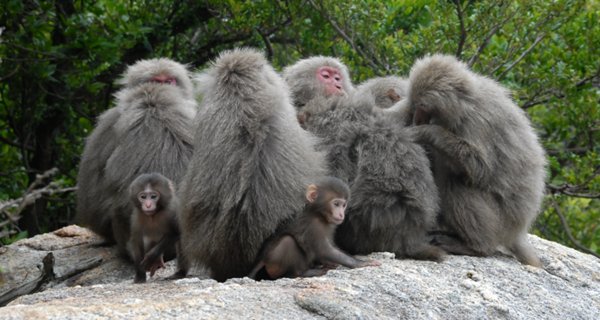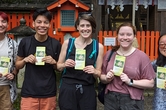Monkeys in the Middle: Parasite Transmission through the Social Network of a Wild Primate

A new study published in the journal PLoS ONE has shown that infection by parasitic nematodes may be facilitated by social contact between primate group members (click here for the original article).
The study, which was led by Dr. Andrew MacIntosh of CICASP and conducted on the Southern Japanese island of Yakushima, shows that female Japanese macaques that are central to the social network of the group are also more likely to be infected by certain parasite species, and for at least one parasite, carry more intense infections as well. The nematode parasites in question are typically thought to be transmitted through contact with contaminated substrata, but this study shows that grooming may also play an important role in the transmission of these organisms, as has previously been shown for mice under laboratory conditions. In Japanese macaque societies, it is the high ranking females that occupy the most central locations, so this study suggests that there may be some costs associated with residing at the top of the hierarchy: i.e. greater exposure to worms. Whether these parasites cause disease in their macaque hosts remains unclear, but a negative outcome of infection would coincide with increasing numbers of worms in a single host. In this way, parasites might impose constraints on social behaviour which could influence contact decisions and perhaps put an upper limit on the number of social partners an individual can maintain within a population.











